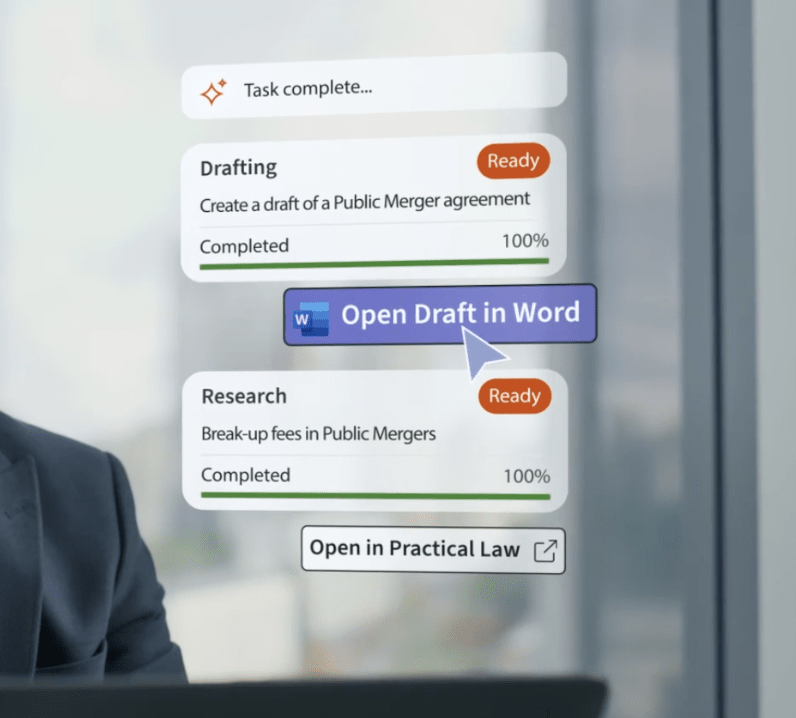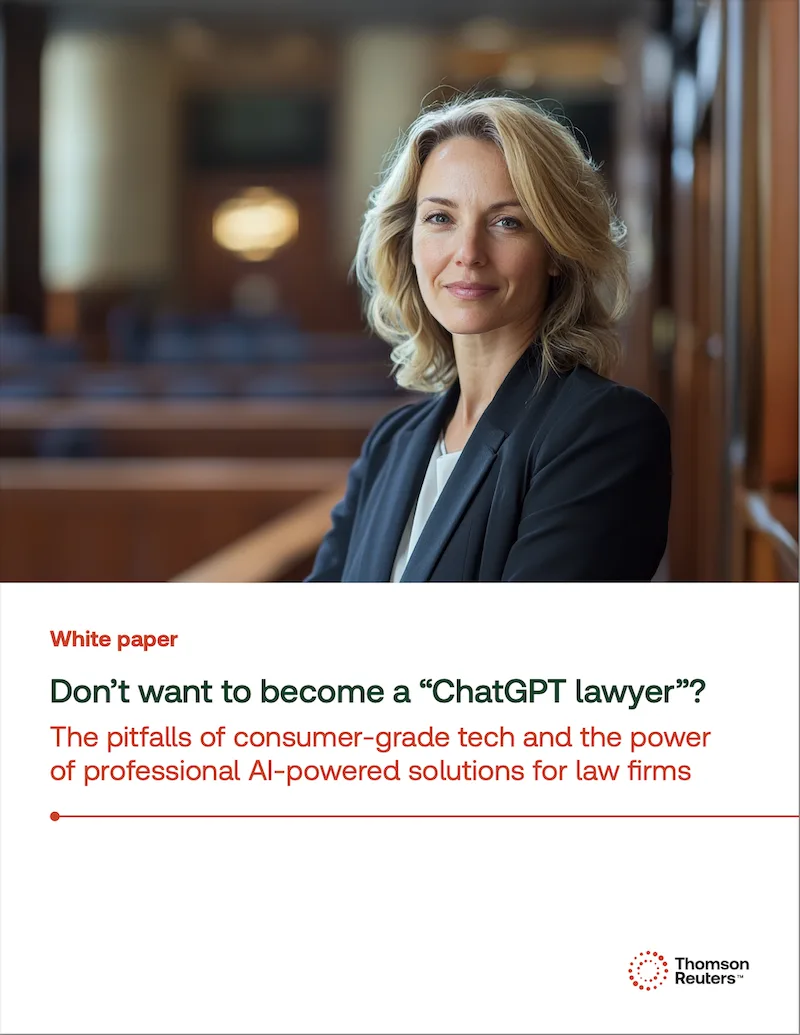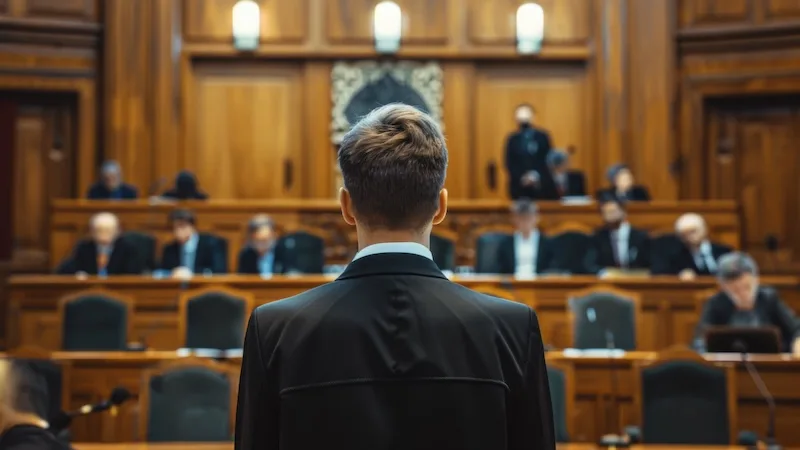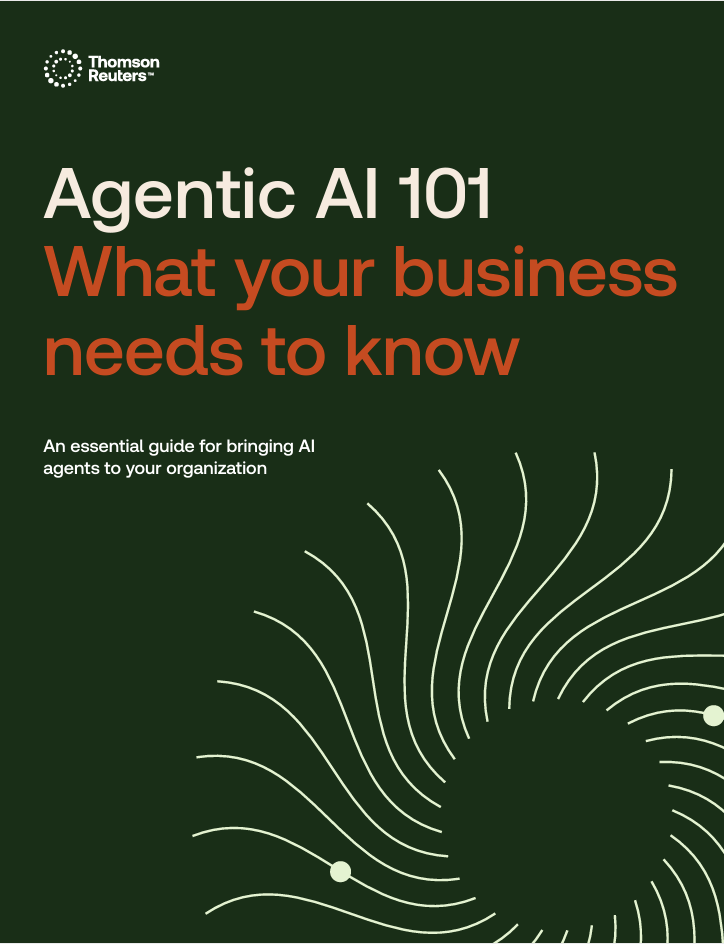Lessons learned from infamous ChatGPT lawyers. How small law firms can leverage professional-grade AI responsibly and gain a competitive advantage
AI isn’t just a passing fad — many lawyers are already integrating into their practice. However, attorneys and their firms risk being dismissed as “ChatGPT lawyers” if they don’t understand how to use AI properly.
In June 2023, a lawyer from a small firm in New York, had to explain to judges why he filed a legal brief in Federal District Court with fake judicial opinions and citations.
Another ChatGPT lawyer, Richard Bednar, was sanctioned by the Utah court of appeals after filing a legal brief with false citations.
These lawyers aren’t alone in their missteps and explain why many in the legal profession are wary of AI. They also underscore the risk to the professional when AI isn’t used with the proper safeguards.
Jump to ↓
Gain clarity about AI with expert resources
Double-check any information generated by AI
Check local rules of the court
Share transparent information about AI use
Decide on how to disclose AI use

2025 Future of Professionals Report
Survey of 2,275 professionals and C-level corporate executives from over 50 countries
View report ↗Gain clarity about AI with expert resources
Get your small law firm the AI knowledge and tools they need by joining our Legal Learning Hub. This is a great resource that helps legal professionals and government use AI.
The AI for Legal Professionals Community is a dedicated space where you can immerse yourself in the progressive changes, ideas, and learnings that are reshaping the legal landscape.
Being mindful of how you use AI is key to making it work for your AI-work-life balance. The cited lawyers above could’ve understood the following concepts before incorporating AI into their practice.
How does AI help with productivity?
Using professional grade AI has the potential to save lawyers thousands of hours. A Thomson Reuters 2025 Future of Professionals Report found AI could save lawyers and other legal professionals as much as five hours a week or 240 hours a year.
Streamlining operations with AI’s help also means lawyers can assist their clients more efficiently and strategically rather than sorting through documentation or searching for the right citation. Law firms that embrace AI will have more of a competitive edge than their counterparts.
Distinguish public AI vs. professional-grade AI
Public or consumer-grade AI, like ChatGPT, can be helpful for querying general information like tourist attractions and recipes. But public AI shouldn’t be misconstrued as a knowledgeable resource for legal cases, opinions, or citations.
Considering either free or paid versions of ChatGPT in the first place should raise major flags among small law firms trying to get ahead while balancing trust and innovation.
A professional-grade legal AI solution should cite cases and pull clauses that can hold up to legal scrutiny.

CoCounsel Legal
Bringing together AI, trusted content, and expert insights
Go professional-grade AI ↗What are the benefits of professional-grade AI?
The benefits of professional-grade AI can be characterized in several ways, including:
- Authoritative content: Professional-grade AI sources data from trusted legal databases. For example, Practical Law’s resources have been cited as legal authority by judges in US state and federal courts more than 75 times.
- Up-to-date resources: Attorney-editors reliably monitor changes in the law to ensure you have up-to-date resources for the topics and jurisdictions that matter to you. If you use CoCounsel Legal, its output always provides linked citations so it’s easy to verify accuracy.
- Data security: Professional-grade AI systems must comply with the National Institute of Standards and Technology (NIST) Cybersecurity Framework and stipulate that no confidential client data will be used without consent.
- Training and support: Features like live support, free e-learning, and AI legal communities help attorneys obtain maximum benefit.
What is agentic AI?
Agentic AI is an action-driven AI tool that shouldn’t be confused with generative AI (GenAI) — agentic AI acts on workflows, whereas GenAI creates content based on prompts.
With agentic AI, a single prompt can trigger multi-step tasks. Agentic AI can create a broader workflow than GenAI can, helping with tasks like performing legal research, comparing draft documents, and preparing for a deposition in a single project.
How do I choose the right agentic AI?
- Use trusted data sources.
- Verify if there’s strong security compliance.
- Use agentic AI that incorporates all-in-one workflows.
Start small and then scale
If you’re hesitant about using AI, start with small but essential tasks like summarizing memos and organizing discovery documents. Once you feel comfortable with how to use AI, you can consider scaling it to other areas of your practice or even become an AI lawyer.
Double-check any information generated by AI
AI offers a faster way to conduct research and draft pleadings, but it doesn’t replace your professional and ethical obligations. Before you submit pleadings or any other document to the court, look up and verify citations, statutes, and quoted language that AI has generated.
Check local rules of the court
Prior to filing any pleadings, briefs, or other documents, check on the judge’s rules regarding AI. These orders are likely listed online. Understand what specific AI rules apply to your filing.
For instance, Federal Judge Michael M. Baylson of the U.S. District Court for the Eastern District of Pennsylvania has a standing order that all parties must disclose the use of AI and certify that all citations have been verified. It’s your responsibility to check federal and state court rules on a judge’s policy regarding AI usage.
Become familiar with emerging legal risks of AI, its bias, and regulations.
For an overview of evolving AI laws and regulations, see Navigating AI laws and regulations across practice areas.
AI resources from Practical Law:
- AI Toolkit (US)
- AI and Machine Learning: Overview
- Generative AI in Litigation: Overview
- AI Key Legal Issues: Overview (US)
- AI and Legal Ethics
- Certification Regarding Generative AI for Court Filings
- Confidentiality Provision Regarding Generative AI
- Law Firm Letter to Client Requesting Consent to Use Generative AI Tools
- Generative AI: Preserving the Attorney-Client Privilege and Work Product Protection
- Generative AI Ethics for Litigators
Share transparent information about AI use
There are judicial orders that mandate what type of AI you may use. Some courts require you to disclose the use of AI, while others require you to stipulate whether you’ve used generative AI.
Courts may also require you to disclose what portion of your filings have been drafted by AI. In addition, other courts may require you to acknowledge that AI usage didn’t result in the disclosure of confidential information.
Decide on how to disclose AI use
In your pleadings, you can add a statement that you have used AI or provide a detailed description of the ways in which you have used AI and how it aided you in your case. Another option might be to have an expert witness testify to AI usage and how it specifically helped with the case.
Ready to become a law firm backed by professional-grade AI?
If you’re curious about integrating AI into your legal practice but are hesitant to start, read the white paper, “Don’t want to become a ChatGPT lawyer?”

White paper
The pitfalls of consumer-grade tech and the power of professional AI-powered solutions for law firms
View white paper ↗










